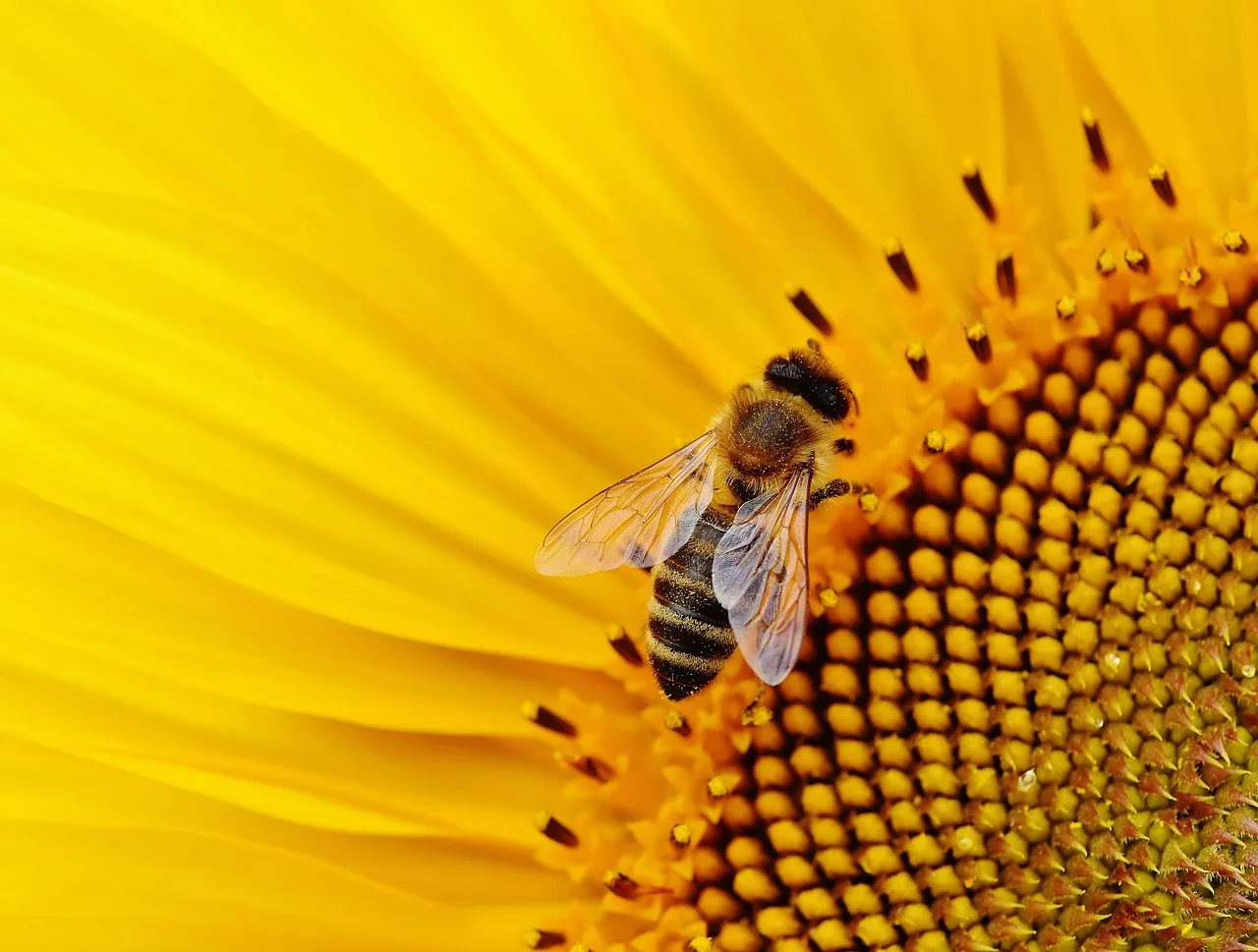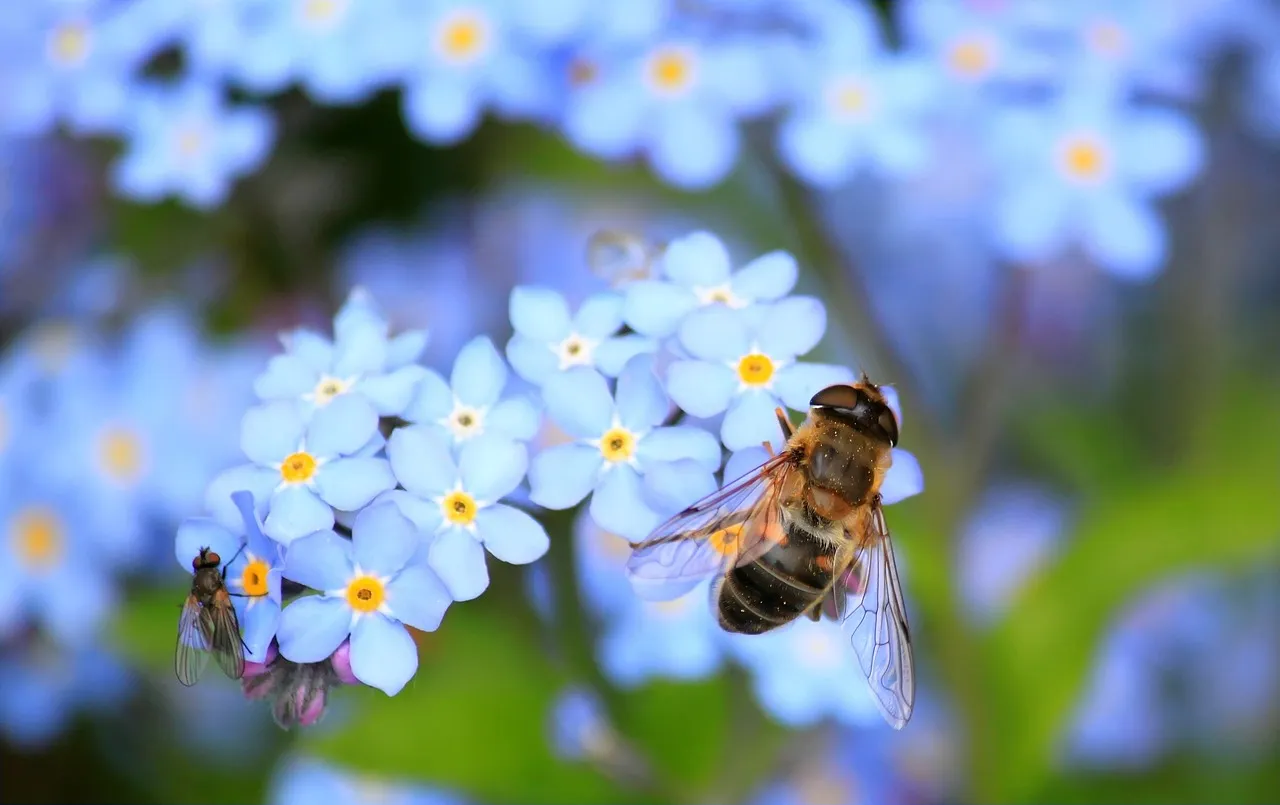
Widely used pesticides, neonicotinoids, are damaging the survival of honeybee and wild bee populations, according to a recent study.
The results of the study also suggest that there is considerable contamination to entire landscapes from these common insecticides and that there is a cocktail effect to be seen which results from using multiple pesticides.
The results of the recent study have been published in the journal Science and it's credited as being the world's largest field trial of its kind. They analyzed 33 different bee farm sites across Hungary, the UK, and Germany. And the findings suggest that the bees could see their life shortened by roughly 25 percent if exposed to the harmful pesticides.
Bee experts have said that the findings don't surprise them for one moment, this is something that has been talked about for quite some time and a lot of people have pointed to pesticides as a culprit that might be playing a role in the declining bee populations.

The researchers noticed that as the insecticide exposure increased, that the reproductive success of the wild bees suffered dramatically. They noted that they had seen significant negative effects and the findings further add to the notion that there is a lot of harm being posed to bee populations because of the use of potentially harmful pesticides.
Interestingly, two companies (Bayer and Syngenta) that sell products which were being scrutinized in the study, put in $3 million toward the research costs. Though they had no part in designing or conducting the study, or reporting on the results. They've since (unsurprisingly) admitted that they find the results to be a rather “simplistic” interpretation of the data. They still think that their products are safe to be used.
The declining bee population is an issue that has been reported on and studied extensively. Aside from many thinking that pesticides are to blame, some of the other reasons for the decline have been suggestions like industrial agriculture, climate change, parasites and pathogens, and a loss of biodiversity.
It's suggested that more than 700 bee species from North America are headed toward extinction. But not everyone agrees that there is a worrisome decline, some suggest that bee populations are in fact on the rise and that there isn't anything to be worried about and they suggest that the declining rates will eventually rise again. Others say that the whole "beepocalypse" is phony and that it's a scam.
Regardless, a number of initiatives have been implemented to try and provide a remedy to what many believe is a growing issue; like the national strategy that's been created to try and promote the health of honey bee populations.
And for this study, which followed bee populations in various countries for several years--since 2015, they found that for those bees part of hives that were placed on fields which had seeds that were treated with pesticides, that they did worse when it came to surviving through the winter.
A separate study published in the same journal this week, which also sought to investigate bee populations, found that worker bees had shorter lifespans after they were exposed to pesticides like neonicotinoids, and that the bee colonies were more likely to lose their queen.

Pics:
Pixabay
Sources:
http://science.sciencemag.org/lookup/doi/10.1126/science.aan6173
http://www.independent.co.uk/environment/nicotine-based-pesticides-do-harm-bees-major-study-concludes-leading-to-calls-for-complete-ban-a7815371.html
http://globalnews.ca/news/3566277/pesticide-neonicotinoids-bee-population-study/
https://www.theguardian.com/environment/2017/jun/29/pesticides-damage-survival-of-bee-colonies-landmark-study-shows
https://phys.org/news/2016-01-complex-worldwide-bee-declines.html
http://time.com/4688417/north-american-bee-population-extinction/
https://www.washingtonpost.com/news/wonk/wp/2015/07/23/call-off-the-bee-pocalypse-u-s-honeybee-colonies-hit-a-20-year-high/?utm_term=.b9b4bc916c12
https://www.sciencedaily.com/releases/2017/01/170127142923.htm
https://www.forbes.com/sites/henrymiller/2015/05/13/the-new-bee-crisis-is-just-like-the-old-crisis-only-different/#5cea05199bba
http://science.sciencemag.org/content/356/6345/1395
Related Posts:
Scientists Develop Pollinating Drones To Serve In The Event Of Honey Bee Extinction
A Groundbreaking New Way To Watch Over Bee Populations
https://steemit.com/science/@doitvoluntarily/a-groundbreaking-new-way-to-watch-over-bee-populations